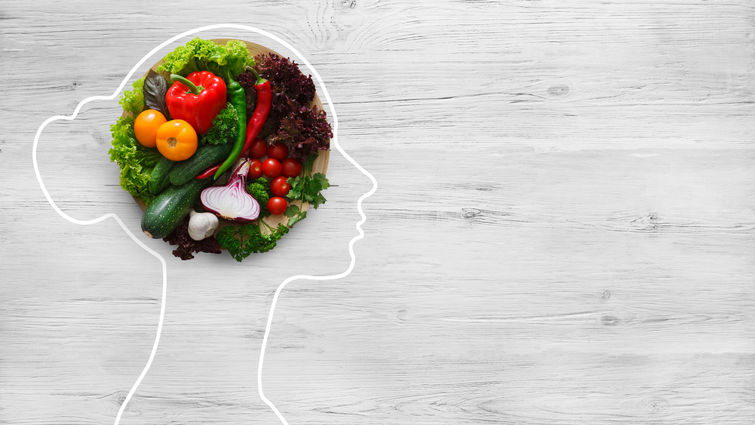
The third week of March marks Brain Health Awareness Week, a global campaign to call attention to brain health and research. This three-pound organ is one of the largest and most complex organs of the human body and is responsible for all basic life functions, thought and memory. Most importantly Dean Sherzai, MD, MPH and Ayesha Sherzai, MD, MAS, co-directors of the Brain Health and Alzheimer’s prevention program at Loma Linda University Health, say that how you care for your brain ultimately determines your risk of cognitive decline.
“The problem we are seeing in brain health is that the current lifestyle factors such as poor diet, longer commutes, stress and lack of sleep present real challenges in properly caring for the brain," Dean says.
Dean adds it is within our power to improve our brain health. Over years of research, The Sherzais have developed a lifestyle-focused approach to preventing Alzheimer’s and improving brain health called NEURO. The comprehensive program empowers individuals to take control of their brain health by improving five areas of impact: nutrition, exercise, unwinding, rest and optimizing.
So where does one start to improve their brain health? The Sherzais say nutrition is a good place to begin because food provides energy to the body and the brain uses up to 25 percent of the body’s energy. As a result, our brains are especially vulnerable to each nutritional choice we make.
The unfortunate reality when it comes to nutrition is that few of us are eating in a way that maximizes the health and resilience of our brains.
“The unfortunate reality when it comes to nutrition is that few of us are eating in a way that maximizes the health and resilience of our brains,” Ayesha says. “But with incremental steps, we can change that. We tell our patients that the goal isn’t necessarily to eat perfectly but to figure out the best, most sustainable diet for them based on verified research and their unique circumstances.”
For a happy and wholesome brain, the Sherzais offer these nutrition tips.
Fill your plate with more brain nourishing foods.
Research indicates that a whole-food, plant-based diet low in sugar, salt, and processed foods positively affects both cardiovascular and brain health. The Sherzais say that even if you don’t perfectly adhere to a whole-food, plant-based diet, incorporating more brain-nutrient foods has tremendous benefits and decreases risk for cognitive decline over time. Here are some foods they suggest adding to your diet:
- Avocados
- Beans
- Blueberries
- Broccoli
- Dark Chocolate
- Extra-virgin olive oil (sparingly)
- Green tea & Herbal Teas (mint, lemon, balm, and hibiscus)
- Herbs (cilantro, dill rosemary, thyme, oregano, basil, mint, parsley)
- Leafy Greens
- Mushrooms
- Nuts (handful per day)
- Omega 3 Fatty acids (walnuts, chia seeds, flaxseed, hemp, kale, brussels sprouts, and spinach)
- Quinoa
- Spices (cinnamon, cloves, marjoram, allspice, saffron, nutmeg, tarragon)
- Sweet Potatoes
- Turmeric/ Curcumin
- Whole Grains
Portion your meals for the time of day.
Ayesha recommends setting the goal of beginning the day with a heavy breakfast high in good carbohydrates such as oatmeal and groats. She adds that including nuts for monounsaturated fats and berries will give you the vitamins from all the major food groups to ensure your brain is ready for the day.
Remember Carbs and Fats can be good for you.
Yes, simple carbohydrates (sugars) found in soda, baked treats, fruit juice and breakfast cereals can create harmful spikes in energy. That is a fact, but complex carbs such as those in vegetables, beans, nuts and whole grains are essential for the body — especially the brain. Complex carbohydrates provide the brain with fiber, proteins, nutrients and vitamins necessary for sustaining a healthy brain.
It’s OK to have a treat once in a while.
The idea of moderation is elusive, a subjective term. Moderation for one individual isn’t necessarily so for another. So how does one decide what an appropriate cheat day looks like or how to scale back? While there is no magic calorie or sugar number to abide by, the Sherzais argue that the answer lies in understanding your definition of brain health. Set a definition that is sustainable and will yield results. From there you can set concrete goals to move you in the right direction towards a brain-healthy diet and create a definition of moderation for you.
If you are interested in learning more about the Brain Health and Alzheimer’s Prevention Program at Loma Linda University Health, please visit the website or call 909-558-2880.
